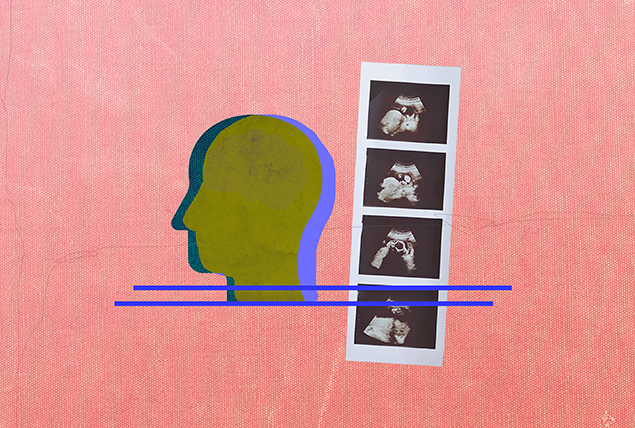Prenatal Mindfulness Class Cuts Maternal Depression Risk, Study Finds

Maternal depression is one of the most common pregnancy complications, affecting an estimated 20 percent of mothers. The problem is worse for underserved populations: Mothers with low incomes are 1.4 times more likely to experience depressive symptoms during or after pregnancy.
"The reason that we care about [maternal depression]—in addition to the fact that it's really common and very distressing for pregnant individuals—is because it has such an impact on both maternal and child health," said Danielle Roubinov, Ph.D., an assistant professor of psychiatry at the University of California San Francisco. "When moms experience depression during the postpartum period, there are potential negative impacts on infant development and health outcomes and their cognitive behavioral and emotional functioning."
Rubinov and a team of UCSF researchers have released new research that suggests the risk of maternal depression can be cut in half by a low-cost prenatal wellness intervention.
The study
For the study, researchers followed 162 women for eight years. They assigned pregnant participants to one of two groups: a standard care group and a prenatal wellness intervention group.
The standard group of participants received traditional prenatal care. Meanwhile, participants assigned to the intervention group were enrolled in an eight-week group wellness class for two hours per week. During each two-hour session, participants practiced mindfulness exercises.
"The exercises were focused on developing healthy skills for managing stress," Roubinov said.
"There were aspects of mindful movement—like gentle yoga and gentle physical activity—which we know to be really important for mental health," Roubinov explained. "There was also a focus on developing mindfulness skills more broadly, so skills around being grounded in the present moment and not judging or automatically reacting to your emotions.
"There were some aspects focused on healthy eating and nutrition, which we also know is important for mental health," she added.
After the eight-week course, the intervention group received two follow-up phone sessions and one booster group class with their babies.
Throughout the study, the women reported their depressive symptoms using a questionnaire. Depression was assessed at the beginning of the study, after the eight-week wellness course, and then annually for eight years following the intervention.
The results
At the beginning of the research, both participant groups reported equal depressive symptoms. However, at every annual assessment point through the eight-year follow-up, women who received mindfulness intervention reported significantly lower depressive symptoms than women who received usual care, Roubinov said.
At the eight-year mark, 12 percent of the participants in the wellness intervention group reported moderate or more severe symptoms of depression. In comparison, 25 percent of women in the standard care group reported depressive symptoms.
"We were surprised by the findings but also really excited to see that such a relatively brief, cost-effective and scalable intervention could have such long-term effects," Roubinov said.
Many studies of maternal depression have traditionally focused on white women, but this study was an exception, noted study author Nicki Bush, Ph.D., professor of pediatrics and psychiatry at the UCSF Weill Institute for Neurosciences in San Francisco.
"Our participants were lower-income, racially and ethnically diverse women who are systemically exposed to factors that put them at risk for depression, such as racism and economic hardship," Bush said in a report published by ScienceDirect. "Also, the final years of the study were during the COVID-19 pandemic, when depression rates were higher for everyone, and the burden placed on communities of color was even greater. Even so, the treatment effects held up."
The researchers are gathering further data to understand how the intervention yielded short- and long-term benefits to mental health. They hope the affordability and minimal time commitment of the wellness class will make it possible to expand the opportunity to more pregnant people, particularly mothers of color and with lower incomes.


















